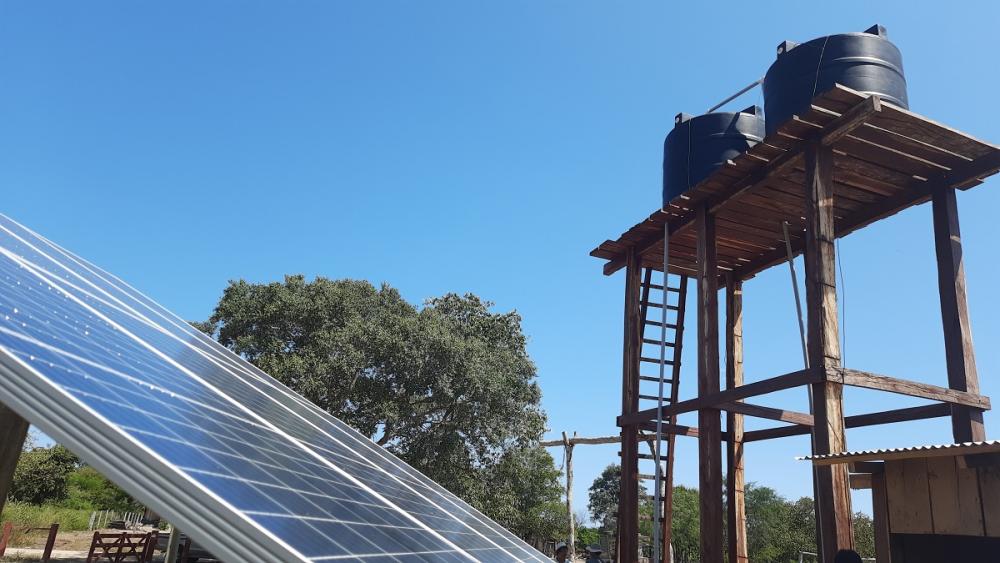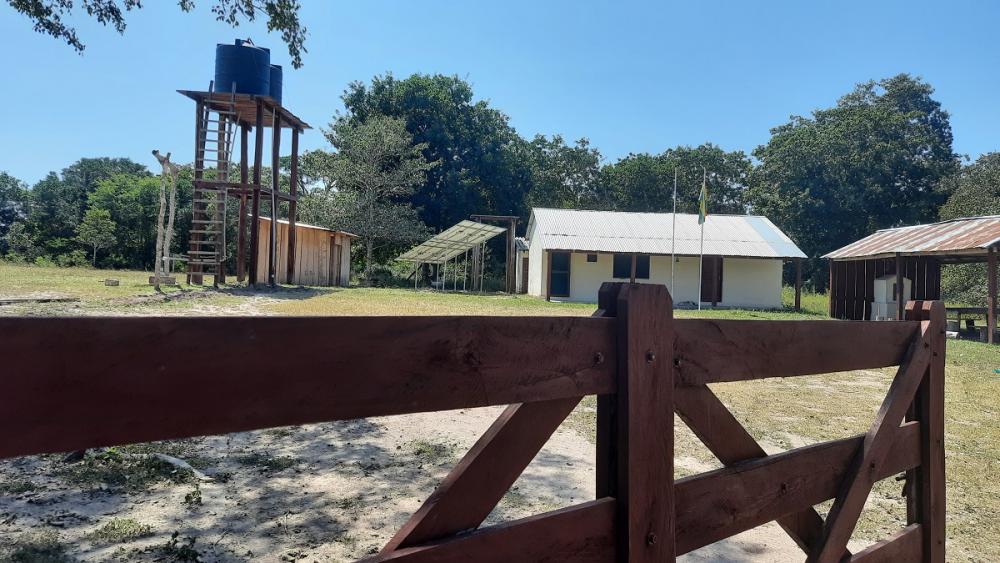IICA supports installation of a submersible solar pump system to supply peasant families with water in Bolivia

La Paz, 27 May 2022 (IICA). – The families of the Bolivian peasant community of Aguas Negras now have water for their personal use, and for watering livestock and irrigating kitchen gardens, thanks to the installation of a solar-powered submersible pump system. The costs involved were covered by the Fund for Sustainable Access to Renewable Energy and Efficient Technologies (FASERTe), which in turn is financed by the German Agency for International Cooperation (GIZ). The system was installed in Bolivia by the Inter-American Institute for Cooperation on Agriculture (IICA), under the aegis of the EnDev Project.
The community, which raises cattle and grows corn, cassava, and rice, is located 80 kilometers from the municipal district of Roboré, in the department of Santa Cruz. A dirt road is the only access to the area, where there is no electricity or phone signal.
“This means life for all our brothers and sisters in the community, and especially for the children. It helps us to water our seedlings and kitchen gardens,” said Justo Batallán, one of the leaders of the Aguas Negras Grassroots Territorial Organization (GTO).
“We’ve been amazed, we’ve never seen the benefits offered by solar panels for powering the water pump and distributing water to our homes,” Batallán added.
The technology of the submersible solar pump system installed is designed to supply about 20,000 liters per day, at a rate of up to 3,000 liters per hour. The system’s pipes and faucets directly benefit 26 families.
The teacher in charge of the community’s education unit, Pedro Wahijas, explained that before the system was installed the residents obtained their water from a well using a manual pump. “Sometimes the pump would break down and we’d have to fetch water from the river in buckets and wheelbarrows. This system is a godsend,” he remarked.
As a counterpart contribution, the community built the four-meter-high structure on which the water tanks sit.

FASERTe is an open fund set up to facilitate the execution of projects by financing activities and initiatives that promote the use and application of renewable and efficient energy technologies under various kinds of cooperation, including efforts to link and strengthen markets, productive uses, and social and community infrastructures.
Marco Romero, FASERTe’s national technical coordinator, explained that the technical team in Bolivia was monitoring and conducting evaluations in the field of different marketing initiatives implemented by the executing entities “that have benefited from competitive funds in rural areas where access is difficult, as part of a continuous effort to link supply and demand for the efficient implementation of modern energy options for different uses in agricultural production.”
FASERTe also aims to stimulate and promote the market for renewable energy and energy efficient technologies (RETs), with special emphasis on the involvement and empowerment of women and youth, thereby contributing to climate change mitigation and adaptation in Bolivia.
More information: Institutional Communication Division.comunicacion.institucional@iica.int